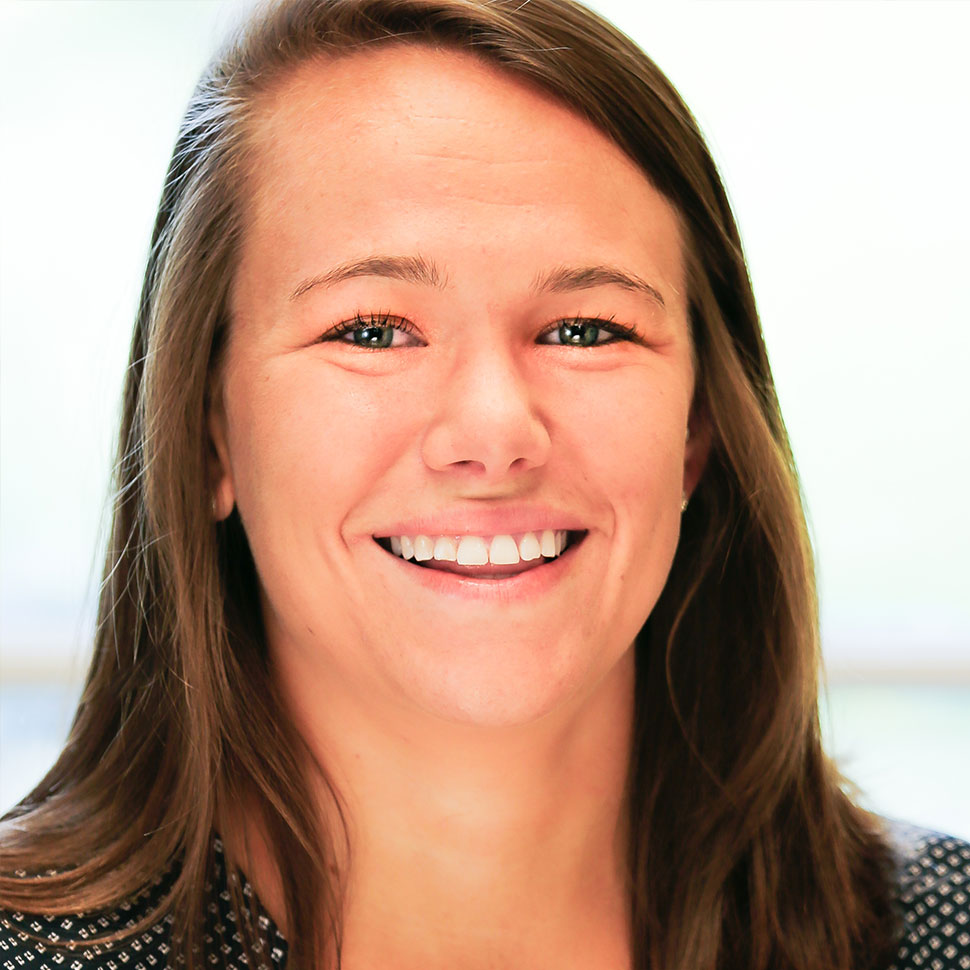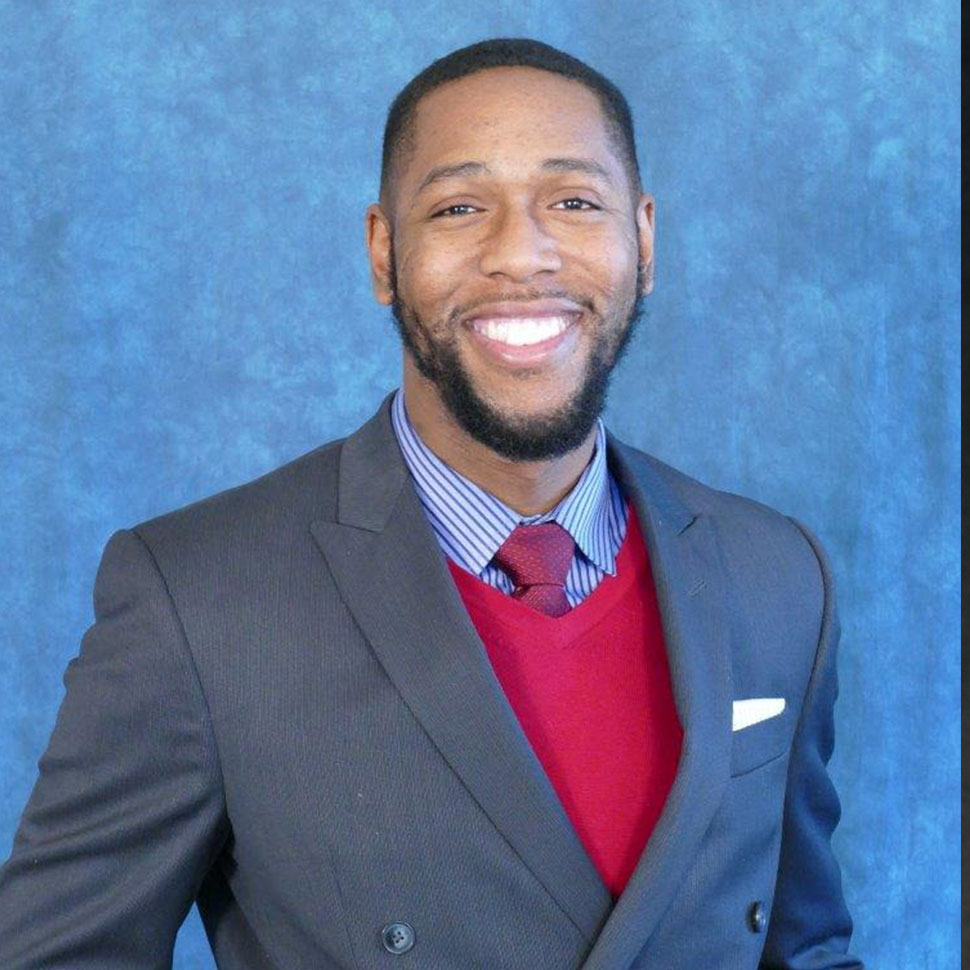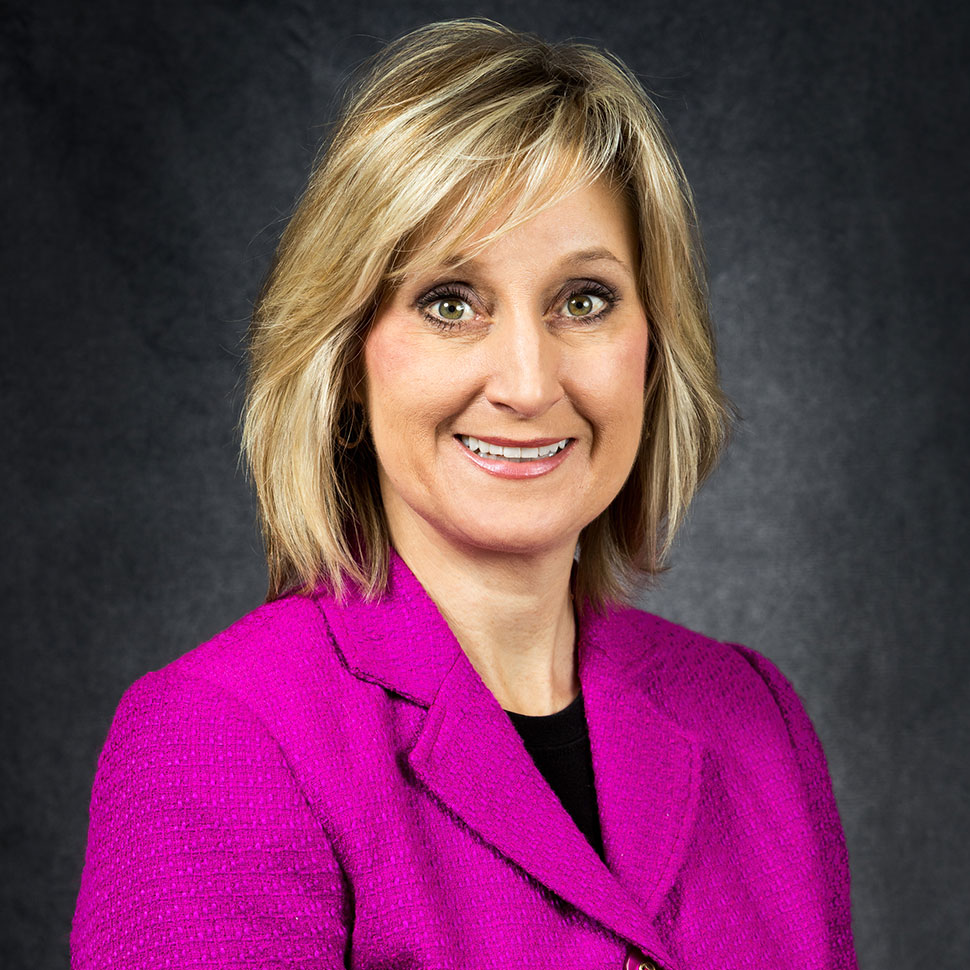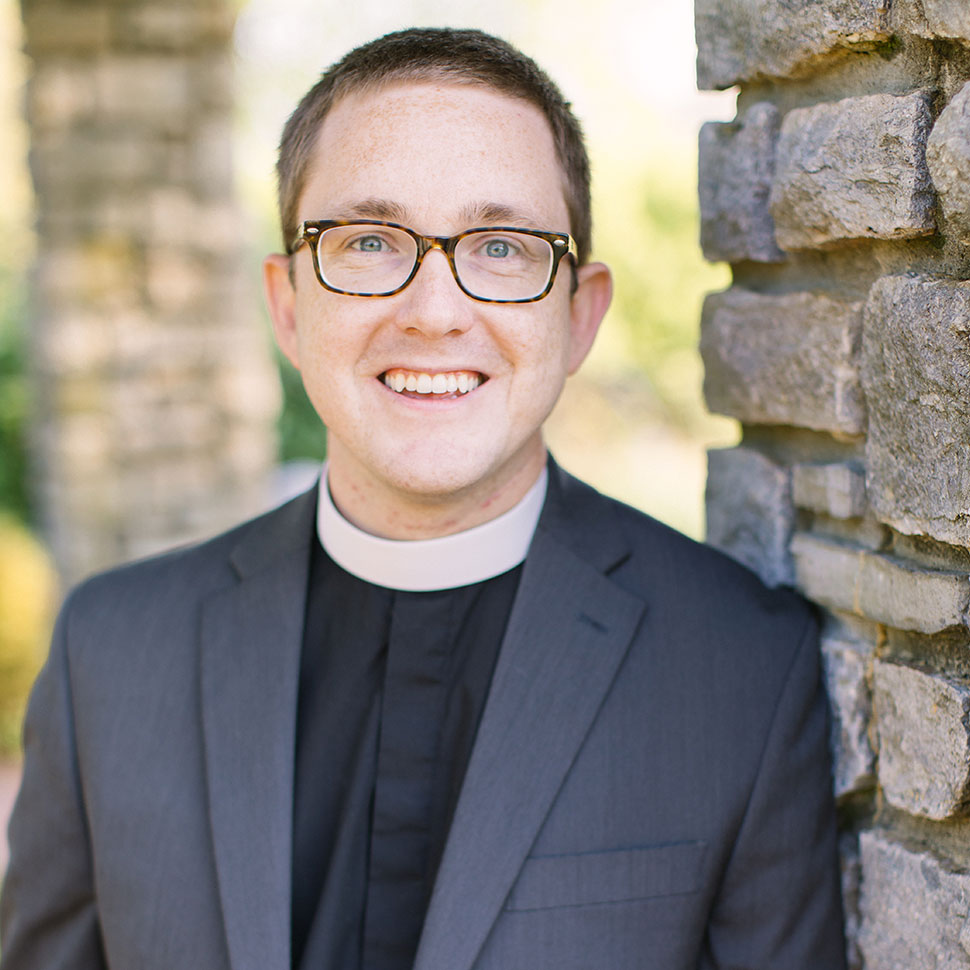Vocational Pathway: Congregational Ministry

Preparing for Congregational Ministry
The Discernment Process
Are you considering pursuing a life in congregational ministry? The discernment process for congregational ministry can be quite a journey, especially as the landscape of the 21st century church is changing; pastors need to be more flexible.
As you consider congregational ministry, reflect on your values, your interests and skills (pastoral care, preaching, education, community outreach), the type of congregational ministry you interested in (i.e. Head Pastor, Youth Pastor, Assistant Pastor, etc.), specific geographic living requirements, and your financial needs (see information on negotiating salary). All of these are important to discern and will influence your search for congregational ministry jobs.
Bi-Vocational Ministry
The School of Divinity is dedicated to preparing its students for diverse ministry settings. Joint degrees are not for everyone. Joint degrees can add more financial strain with student debt. However, if you are considering bi-vocational ministry, then a joint degree might be a great option to help you develop more skills and experiences.
Joint Degrees
- MDiv/MA in Bioethics
- MDiv/MA in Counseling
- MDiv/MA in Education
- JD/MDiv
- MDiv/MA in Management
- MDiv/MA in Sustainability
Concentrations are another great way to gain deeper insight into specific fields. The divinity school has three concentrations.
Concentrations
Denominational Resources
Do you have a denominational home? Are you still exploring? Here are some links that can help you find out more information about theological beliefs, ordination requirements, etc.
- American Baptist
- Cooperative Baptist
- Alliance of Baptist
- National Baptists
- Evangelical Lutheran Church of America
- Episcopal Church
- African Methodist Episcopal Church
- Presbyterian Church USA
- United Church of Christ
- Christian Church (Disciples of Christ)
- United Methodist Church
- Church of God in Christ
Preparation Guide
It is important to have a strategic plan while pursuing the M.Div. Following this checklist will help you prepare for a life in congregational ministry.
Here are some important things to consider if you want to pursue congregational ministry:
Denominational Tradition:
What is the tradition in which you were formed? Does this denomination reflect your current theological understanding? Does this denomination support the ministry you are interested in?
Discernment around denomination is very important. If you come to divinity school with a denominational tradition, you should do an assessment to explore how this tradition will support your ministry. If you do not come to divinity school with a denominational tradition, you should explore denominations by talking with students and faculty.
Ordination:
Every denomination has a specific theological view of ordination. Certain denominations only ordain persons for congregational ministry. Some denominations will not ordain women in Ministry or LGBTQ+ persons. Hence, knowing how your denomination views ordination importantly shapes your ministry.
Reach out to your denominational organization to begin the ordination process. Many mainline protestant denominations have the ordination process align with your three years in divinity school. As such, even if you are unsure if congregational ministry is right for you, go ahead and start your denominational ordination process as soon as possible.
Consider what you have to do to be ordained in your denomination. Some denominations require students to take Greek and Hebrew or a Polity and History class. Some require Clinical Pastoral Education. As such, explore your denominational requirements. Even more, many denominations require you to be a member of a denominationally affiliated church for at least a year before you can be ordained. Hence, you will want to know the concrete steps you need to take in order to be ordained.
Internships:
The best way for you to find out if congregational ministry is right for you is to be in a congregational ministry setting. You will want to find a setting that gives you opportunities to preach, teach, and provide leadership in other capacities. It cannot be overstated how important it is to have leadership roles in your ministry setting. Your internships are how you gain experience and thus how you will find employment upon graduation. As well, these experiences function as a vocational discernment tool so that you can actually see if the work you think you are interested in fits with your interests, values, and skills.
Working in a congregational ministry setting over the course of the academic year can be a very valuable experience. Many denominations follow the liturgical seasons, which means you should have religious leadership experience in every season. A year long experience also allows you to explore various leadership roles, including worship leadership, relational care, administrative leadership, educational leadership, and community outreach. Ask yourself: what will church in my denomination be looking for in a pastor? Whatever your answer to that question is, seek out those experiences. Even more, because congregational ministers do much more than preach, teach, and provide spiritual care and guidance, you should seek to gain administrative experience in your internships.
Spiritual Practices:
Figure out who you are and what self-care practices allow you to be your true and full self. Many congregational ministers experience a feeling of burnout in their first couple years of ministry. What practices can you develop now that will help you work through the stress of ministry?
Gain Relevant Experiences:
What skills do you need in order to land a congregational ministry job? What will search committees be looking for, and how can you demonstrate to them you have those skills? Preaching a handful of times will not prepare you enough for congregational ministry. Many pastors acknowledge their first year of preaching as their hardest because it requires you to write a sermon every week. Therefore, pursue preaching opportunities. You may explore Wake the Pulpit, a community resource where churches who need preachers call on Wake Students, and nursing homes and retirement centers often are looking for people to lead worship and or preach. These are great opportunities to gain experience writing and delivering sermons. As always, have your sermons recorded so you can send samples to congregations. Depending on your denomination, in order to successful search for congregational ministry positions, you will need to build a strategic portfolio that articulates who you are as a minister. Other experiences will depend on the type of congregational ministry you are looking to pursue, but may include pastoral care, teaching and educational development, and community building.
Applying to the Job:
How you apply for a congregational ministry job will depend based on your denomination. Check with your denominational affiliation to learn the specific steps you need to follow in order to apply for positions. But, regardless of your denominational tradition, networking is a great strategy to build your professional network and learn of different opportunities.
Alumni Profiles

What is your Denomination or faith tradition?
Christian Church (Disciples of Christ)
What is the name and location of the Church you are serving?
St. Paul’s Christian Church (Raleigh, NC)
How long have you been serving there?
Since July 2018
Are you full-time? Part-time? Bi-vocational?
Full-Time
Why did you choose to pursue congregational ministry? And, how did that decision relate to your understanding of vocation?
While at Wake Divinity, I interned and worked with a variety of ministries, including faith-based non-profit work, hospital chaplaincy, congregational ministry, and community organizing groups. Since I didn’t begin the M’Div program with a set idea of my vocational call or post-grad plans, I wanted to experience a variety of vocational possibilities. During my second year at Wake Divinity, I interned with First Christian Church (FCC) Greensboro and this is experience was very influential in my discernment process. During my time at FCC, I was affirmed in my gifts for both pastoral care and organizational leadership. Then, during my last semester at Wake Divinity, an Associate Minister position opened up at one of the few Christian Churches in Raleigh, NC, where I would be re-locating post-graduation. Throughout the interview and installation process at St. Paul’s Christian Church, I felt confident that God’s Spirit was leading me to this position and local congregation. This process reminded me that vocational discernment is fluid and on-going, involving our own agency and God’s leading spirit.
What wisdom would you give to students considering congregational ministry?
Your time at Wake Divinity is an opportunity to explore and gain first-hand experience in a variety of ministries. Whether you come into Wake Divinity with some idea or no idea about your ministerial call, I would encourage all students to capitalize on Wake Divinity’s expansive ministerial network. If you are considering congregational ministry, definitely intern with one or two local congregations, but also consider a chaplaincy or non-profit internship. One way to confirm your specific call and ministerial gifts is to try on a number of hats to see what fits best. Your inkling towards congregational ministry may be confirmed, or God’s Spirit may use these opportunities to open up your mind to another vocation path.

What is your Denomination or faith tradition?
Baptist (American Baptist/Cooperative Baptist
What is the name and location of the Church you are serving?
First Baptist Church in Jamaica Plain
How long have you been serving there?
One year and six months
Are you full-time? Part-time? Bi-vocational?
Full Time
Why did you choose to pursue congregational ministry? And, how did that decision relate to your understanding of vocation?
My decision to pursue congregational ministry was shaped by an assortment of experiences such as working in University Campus Programs and Services department, University Student and Greek Life, working in the food services industry, and remaining connected in a church. These experiences helped me to see more clearly how my call and work of ministry is useful in a congregational setting that also has the potential to shape and transform the public square.
In talking about the role of the church, Dr. Martin King Jr. said in his letter from a Birmingham Jail that the church needs to “recapture its prophetic zeal” in order to prevent becoming an “irrelevant social club without moral or spiritual authority.” As I stand today, I believe that my vocation is to strive and guide the church’s reclamation of prophetic zeal and inspire it toward a greater understanding of its intended purpose as an agent of change, justice, compassion, and reconciliation in and for the world.
What wisdom would you give to students considering congregational ministry?
The best wisdom I could give anyone considering congregational ministry would be to pay forward what was shared with me during my time at Wake Div which is to not underestimate the power, potency, and potential of congregational ministry. Working within community, and having a secure foundation and support system is one of the many great gifts of congregational ministry. It provides you a place to hone your craft for ministry, allow you to explore and experiment with your understanding of vocation, continue a life of learning, and keep you grounded by reminding you that your community has just as much to offer you as you have to offer them.
The church and its leadership has the greatest calling to be concerned with both the spiritual and day to day matters of people on the earth. Thus, through congregational ministry, we have an opportunity to speak life into the issues pertinent to the day to day lived experiences of people. Additionally, we get to preach the gospel message consistent with the message of Jesus, the conviction in our souls, and enable the church to retain its moral and spiritual authority for generations to come.

What is your Denomination or faith tradition?
I have now have standing in the United Church of Christ. I was raised in a small Baptist church in Walkertown NC. I was ordained at Ardmore Baptist in Winston-Salem in 2002. After graduating from Divinity School, First UCC Winston-Salem called me to be their pastor, so I pursued the process to receive standing in the UCC denomination. Been here and happy ever since.
What is the name and location of the Church you are serving?
First Reformed UCC, Lexington NC
How long have you been serving there?
Since World Communion Sunday 2015. A little over 3 years.
Are you full-time? Part-time? Bi-vocational?
I began as 20 hour part-time Designated Interim, then transitioned to ¾ time Installed Pastor. In January 2019 will transition to serve Full-Time.
Why did you choose to pursue congregational ministry? And, how did that decision relate to your understanding of vocation?
I never envisioned myself in congregational ministry. I began Divinity School after working several years as an elementary school counselor. I wanted to continue in the path of counseling. However, when it came time to select a 2nd year internship, my initial selection at a counseling center fell through. Time and choices were running out, and as a last resort I decided to intern at a Baptist church “just to rule out” the possibility of church ministry.
It didn’t take long for me to absolutely fall in love with congregational ministry… The preaching, the writing, the relational aspects, getting to work with children and adults, leading worship, making home visits, connecting in the community, helping with outreach. I was pretty concerned when I realized cong. Ministry included hospital visits. I had a history of feeling woozy in hospitals, passing out twice when I had visited friends. However, with the help of my mentor, I worked through this phobia and now I proudly say I have not passed out once while visiting a parishioner…
I served one congregation for 10 years, served a couple of interims, and now am back in full time ministry. Vary rarely is there a dull day in my life as a minister. God is always up to something.
What wisdom would you give to students considering congregational ministry?
I am not sure I have wisdom, but a few things I have learned for myself over the years…
- As cliché as it sounds — Never say never…
- I have had to find a way to reconcile that rarely anything I do in ministry will be completely finished…There is always a person who needs to be visited, always a sermon that can be tweaked just bit more, always another phone call that can be made, and certainly so many needs in the community that could be met. There is never enough time or money to do all that is needed. Learning that what I can do today must be enough for today.
- I have learned that as a minister, I cannot cut and paste a program from another church into the church I serve. Buying flashy programs or the latest How to Do ministry book is tempting, but it NEVER takes the place of slow and steady discernment—paying attention, listening, praying.
While I have not mastered this… I continue to work on being a non-anxious presence in the midst of a fearful and anxiety ridden world.

What is your Denomination or faith tradition?
The Episcopal Church
What is the name and location of the church you are serving?
Church of the Good Shepherd, Lexington, Kentucky
How long have you been serving there?
3.5 years
Are you full-time? Part-time? Bi-vocational?
Full-time
Why did you choose to pursue congregational ministry? And, how did that decision relate to your understanding of vocation?
From my earliest sense of call to ministry, I identified with the role of pastor. That sense of call has persisted throughout many phases and stages of my life. My greatest joy is walking with people in a congregation through all of the many seasons and circumstances of life. As I discerned where this call might lead me following seminary, I was deeply drawn to Good Shepherd, where I presently serve, because of the ability to work broadly with such a diverse group of God’s people.
What wisdom would you give to students considering congregational ministry?
The greatest gift and the greatest challenge of congregational ministry are one and the same – the invitation into all aspects of people’s lives, the joyful and beautiful, along with the painful and broken. If we allow ourselves to slow down and be present, we discover God’s presence is hidden and being revealed in it all.

